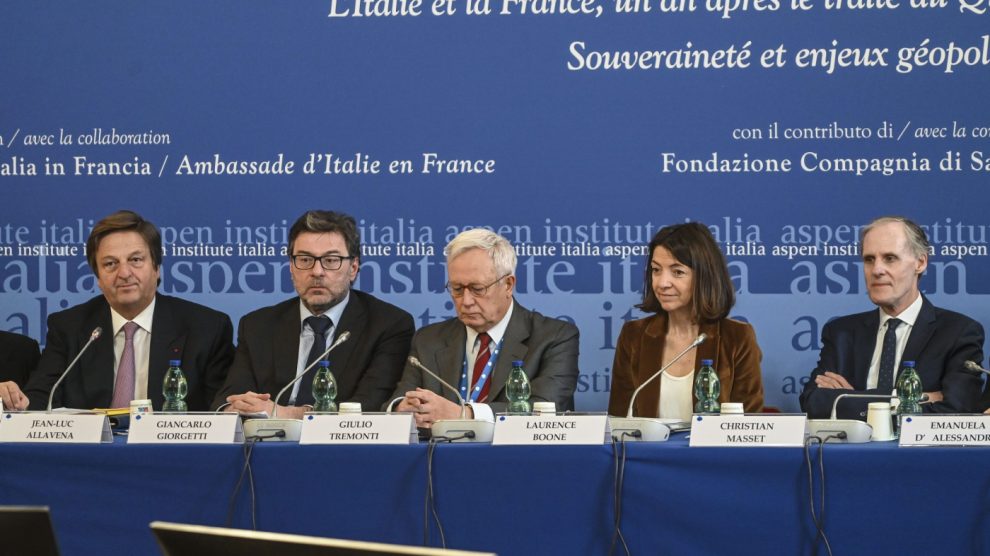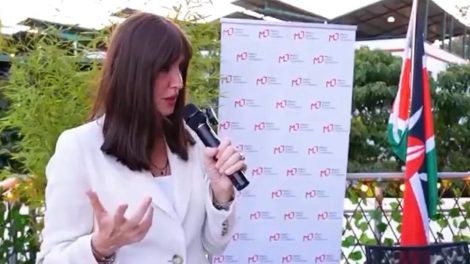Quote of the day. “The Italian-French relationship is symbolised by a scissor, sometimes wide and sometimes narrow: the Quirinal Treaty is a way to prevent it from opening too wide.” Thus spoke Giampiero Massolo, President of the Italian Institute for International Politics Studies (ISPI), referring to the year-old bilateral cooperation agreement that reshaped the ties between Rome and Paris.
- Mr Massolo was speaking at the press conference that followed the closed-doors Aspen Forum event, “Italy and France one year after the Quirinal Treaty – The challenges of sovereignty and geopolitical challenges,” held on Friday at the French Embassy in Rome.
- “The idea of this meeting was to create a special relationship between Aspen France and Italy to help the relationship between the two countries,” explained Jean-Luc Allavena, president of Aspen Institute France. “The Aspen Institute is a place where we can think of having a relationship between all sectors to do things.”
Taking stock of the Treaty’s impact – and the wider European context around it – was the panel’s intended goal. Thus, conversations centred on energy, security, European sovereignty and, of course, relations between Rome and Paris, as well as the geopolitical challenges facing the continent – namely, the war in Ukraine, the future of relations with China and the threats and opportunities coming from the shared Mediterranean Sea.
- Panellists included Foreign Minister Antonio Tajani, Economy Minister Giancarlo Giorgetti, French Minister for European Affairs Laurence Boone, Eni CEO Claudio Descalzi, and the respective Italian and French ambassadors, Emanuela D’Alessandro and Christian Masset.
- Italian President Sergio Mattarella highlighted the meeting’s importance via message. “The Forum constitutes a valuable opportunity to deepen many aspects of a relationship of extraordinary strategic importance, on a bilateral level as well as in the European context and on the global agenda,” said the Head of State.
Let’s talk Europe. There is no progress for the European Union that “goes beyond the progress of individual countries,” remarked Mr Massolo. “In this perspective, strong member States working together strengthen the EU and succeed in achieving critical mass.”
- “Europe is strong if it opts for a mechanism that avoids vetoes,” said Lorenzo Bini Smaghi, president of Societé Generale, remarking that the shared experience on deciding on health and vaccines is the base to slowly getting to the majority and overcoming unanimity in the EU.
- A position echoed by Giulio Tremonti, president of Aspen Italia and chairman of the Foreign Affairs Commission of the Chamber of Deputies, who recalled how the EU was created by a crisis and how crises have often been the engine of integration. So much so that “it is possible that European defence will develop from war. Hard to say how long this will take, but this is the European way.”





